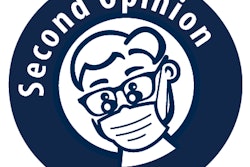
U.S. President Donald Trump signed the Action for Dental Health Act into law on December 11, 2018.
The law establishes a new Action for Dental Health campaign and authorizes about $32 million of funding in each of the fiscal years 2018 through 2022 for oral health promotion, disease prevention, and increased access to dental care in underserved communities. The bill's signing was hailed as a victory for dentistry and patients by the ADA.
"The Action for Dental Health initiative shows that our profession believes all Americans deserve good dental health. The ADA is pleased to see Congress prioritizing legislation that will improve access to oral healthcare," stated Jeffrey M. Cole, DDS, president of the ADA, in a press release.
The legislation was first introduced to the U.S. House of Representatives in May 2017 as HR 2422 by co-sponsors Reps. Robin Kelly (D-IL) and Mike Simpson, DMD (R-ID). It took nine months for the bill to progress through the House, finally passing in late February 2018 on a 387-13 vote. The bill then went to the U.S. Senate, where it was passed with an amendment by voice vote in October 2018. The House of Representatives then agreed to the amended bill on November 28, which was sent to the president for signing the next day.
The legislation authorizes $18 million in each of the fiscal years 2018 through 2022 for oral health promotion and disease prevention programs at the Centers for Disease Control and Prevention, according to the Republican Policy Committee's summary of the bill.
The law also authorizes almost $14 million in each of the fiscal years 2018 through 2022 for the Health Resources and Services Administration's Grants to States to Support Oral Health Workforce Activities program. The program aims to increase access to dental care in underserved communities.
The new law will be helpful in improving preventive oral health programs, noted Beth Truett, president and CEO of Oral Health America, in a statement.
"This legislation is encouraging and signals oral health is a priority of Congress. Increasing oral health education and preventive oral health programs will be key to improving early diagnosis, intervention, and prevention programs for our communities," Truett stated.



















